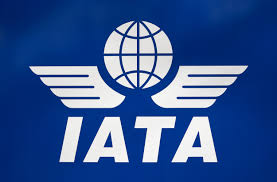The International Air Transport Association (IATA) called for urgent action to deepen the understanding on the formation and climate impact of aviation contrails to develop effective mitigation measures. The newly released IATA report Aviation Contrails Climate Effect: Tackling Uncertainties & Enabling Solutions (pdf) calls for a strengthening of collaboration between research and technological innovation, coupled with policy frameworks to address aviation’s non-CO2 emissions through more atmospheric data.
The report highlights the complexity of contrail science, noting gaps in the understanding of how contrails form, or when they could persist, and how they impact the climate. The lack of high-resolution, real-time data on atmospheric conditions (particularly humidity and temperature at cruising altitudes) hinders precise contrail forecasting.
“The industry and its stakeholders are working to address the impact of non-CO2 emissions on climate change, particularly contrails. To ensure that this effort is effective and without adverse effects, we must better understand how and where contrails form and shrink the uncertainties related to their climate impact. “Action now” means more trials, collection of more data, improvement of climate models, and maturing technologies and operations. Formulating and implementing regulations based on insufficient data and limited scientific understanding is foolish and could lead to adverse impacts on the climate. That is why the most important conclusion from this report is to urge all stakeholders to work together to resolve current gaps in the science so that we can take effective actions,” said Willie Walsh, IATA’s Director General.
Recommendations
With current levels of understanding, the report made the following recommendations:
In the immediate term (2024-2030), the priority for mitigating aviation’s climate change impact should be on reducing CO2 emissions over the uncertain gains that could stem from contrail detection and their mitigation. Over this time, increasing airline participation in sensor programs, continuing scientific research, and improving humidity and climate models should be the focus of work on contrail mitigation.
Mid-term actions (2030-2040) should involve establishing standards for data transmission, continuous validation of models, and encouraging aircraft manufacturers to include provisions for meteorological observations, as well as selected avoidance.
Longer-term actions (2040-2050): Aircraft should be continuously providing data and the models and infrastructure should be there and be reliable. The community will have at this point a more complete understanding of the non-CO2 effects of alternative fuels, with extended mitigation measures. These action items collectively aim to mitigate the climate impact of aviation while advancing scientific understanding and technological capabilities.
Background on Aviation’s Non-CO2 Emissions
Aviation’s impact on climate extends beyond CO2 emissions, with non-CO2 effects such as contrails and nitrogen oxides (NOx) also contributing to global warming. Persistent contrails, formed in ice-supersaturated regions, can transform into cirrus clouds which reflect incoming solar radiation (during the day) as well as trap outgoing heat. On balance, it is understood that contrails have a warming effect on the climate, with diurnal, seasonal, and geographical variations. However, despite extensive studies, significant uncertainties exist with respect to the capacity to predict individual contrail formation and their specific climate impact.
Initiatives and Trials: Recent collaborations among meteorologists, climate researchers, airlines, and aircraft manufacturers have yielded new insights that underscore the need for enhanced data collection and analyses of the likely air traffic network complications regarding any solutions. Trials with modified flight paths and alternative fuels have shown potential yet limited efficacy due to the variability of atmospheric conditions and the localized nature of where contrails occur.
Technological Advances and Future Directions: Advancements in developing humidity sensors to be placed on aircraft are critical for contrail prediction and avoidance strategies. Current sensor technology on commercial aircraft lacks the required sensitivity and response time, and there are only a handful of such sensors in operation at altitude. Ongoing research aims to develop more accurate, robust, and scalable solutions, and the use of sensors on a limited population of aircraft would allow the necessary improvement and validation of numerical weather prediction models. (https://www.breakingtravelnews.com/news/article/iata-calls-for-deeper-understanding-of-aviation-contrails-climate-impact/)





































